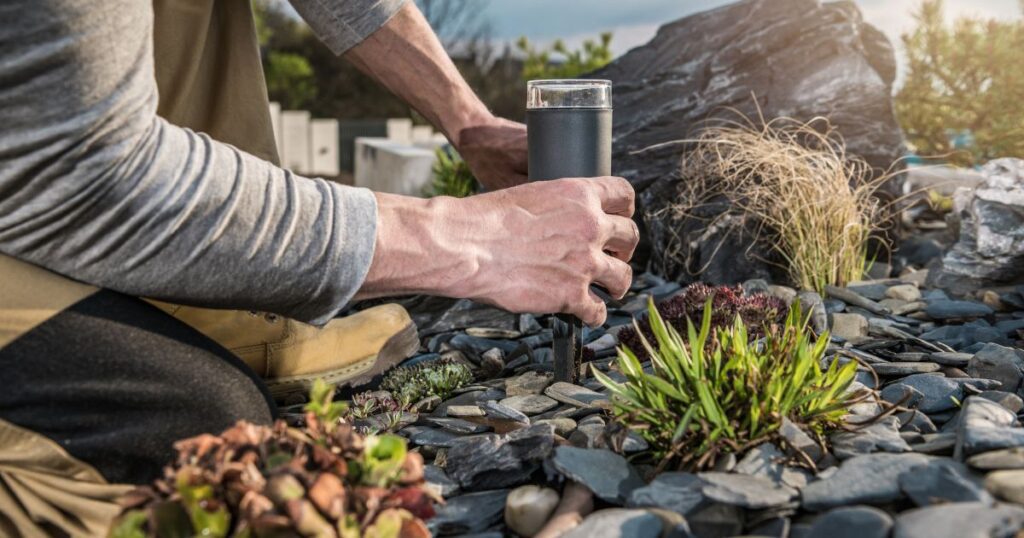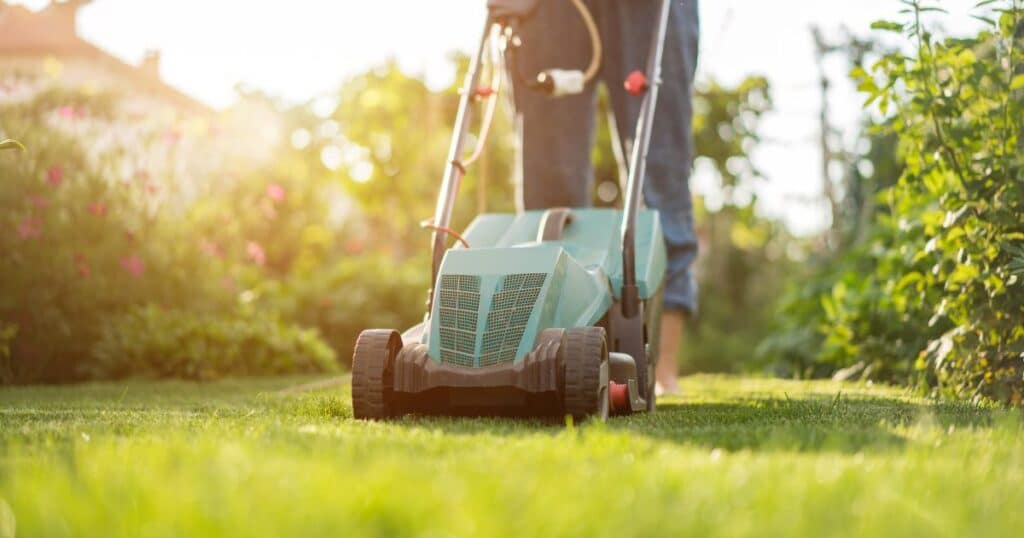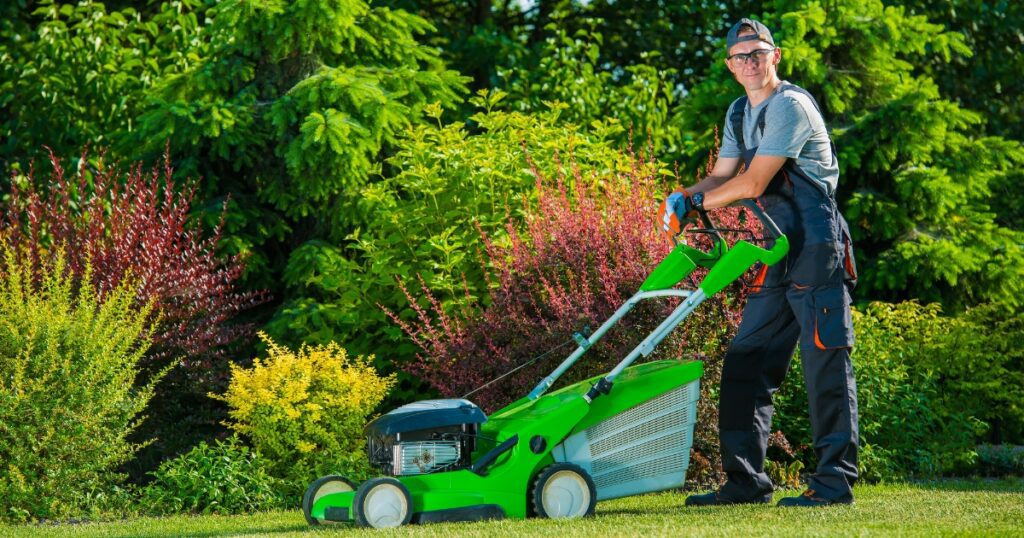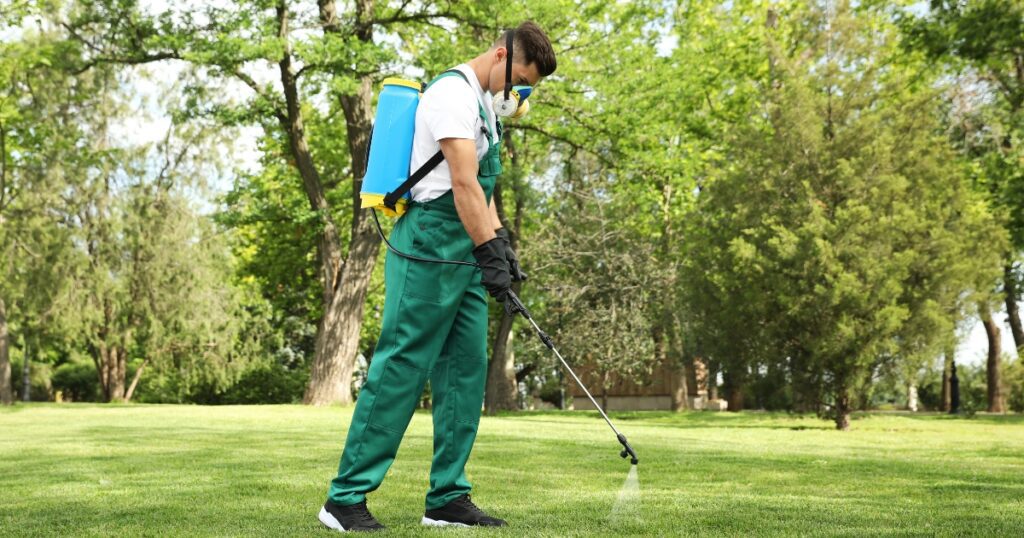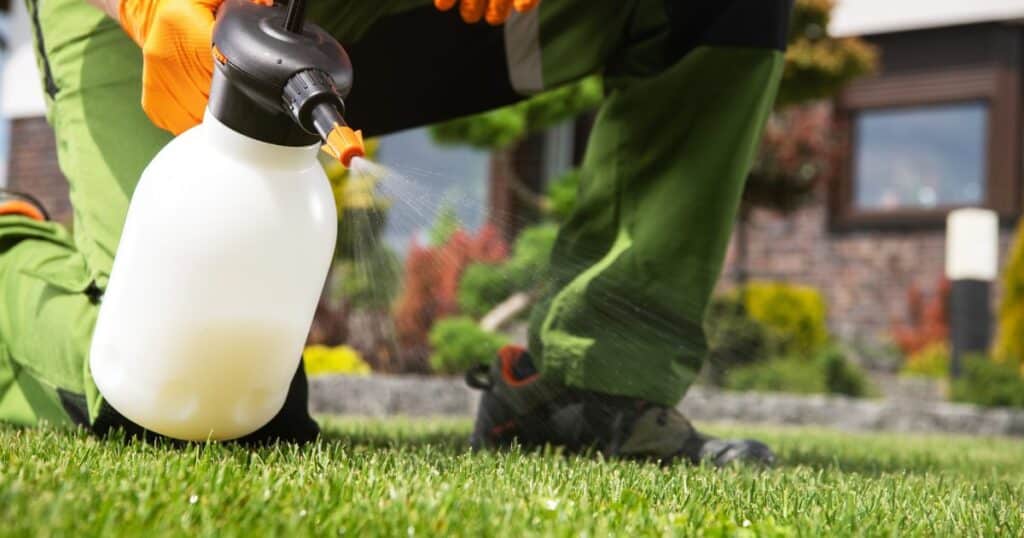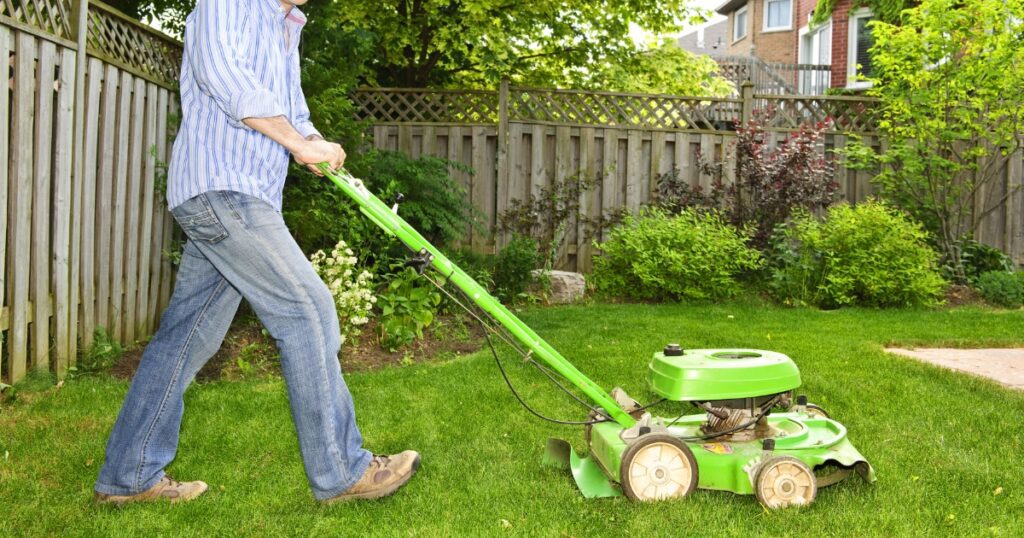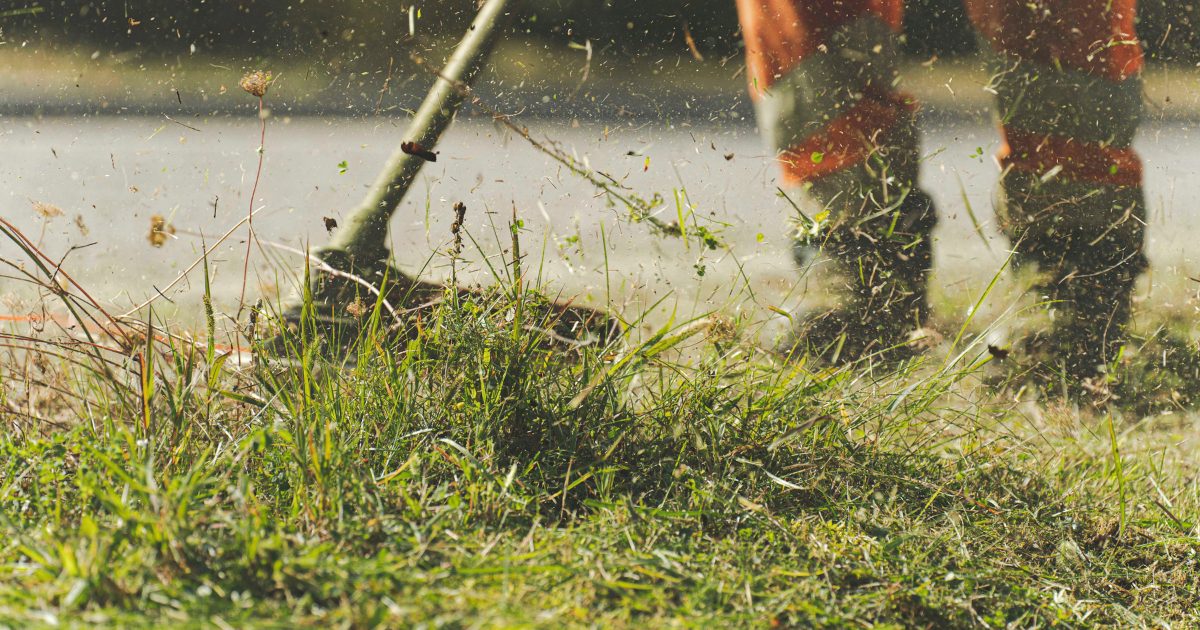
When it comes to maintaining a healthy and vibrant lawn, Dallas, Fort Worth, homeowners have unique challenges due to the region’s climate and soil conditions. A well-maintained lawn not only enhances the curb appeal of a property but can also provide numerous benefits, such as reducing heat, air, and noise pollution, increasing property value, and providing a safe space for outdoor activities.
The Importance of Lawn Care Dallas Fort Worth
The weather in Dallas, Fort Worth, can be unpredictable, with hot and dry summers and cooler winters. The summer months can bring high temperatures exceeding 100 degrees Fahrenheit, while the winter months can bring freezing temperatures plummeting into the 20s or below.
The heat, coupled with periods of drought, creates a challenging environment for lawns to thrive. This makes it imperative for homeowners to prioritize lawn care.
Additionally, soil conditions in Dallas Fort Worth tend to be heavy clay soils that are difficult for roots to penetrate, leading to shallow root systems which make lawns more susceptible to stress from drought or extreme temperatures. In addition, the clay soil tends to retain moisture which may lead to root rot if not managed correctly.
RELATED: Maintaining the Green Oasis: The Art of Lake Dallas Lawn Care
Purpose of this Article
In this article, we will explore the best practices for maintaining a healthy lawn in Dallas, Fort Worth, including basic lawn care practices such as mowing, watering, fertilizing, and weed control, as well as advanced techniques such as aeration and overseeding. We will also address common lawn problems faced by Dallas Fort Worth homeowners, including brown patch disease, chinch bugs, grubs among others.
We will also provide an overview of professional lawn care services available in the area, along with comparisons between DIY vs professional services so that you can make an informed decision about what works best for your needs. If you’re looking for tips on how to maintain a beautiful and healthy lawn in Dallas, Fort Worth, then this article is for you!
Climate and Soil Conditions in Dallas Fort Worth
The Climate of Dallas Fort Worth
Dallas Fort Worth has a humid subtropical climate, which is characterized by hot summers and mild winters. Average high temperatures in the summer months can reach up to 96°F, while winter lows can go down to 36°F.
Humidity is also an issue in the area, with average levels ranging from 60-70%. Additionally, the area experiences frequent thunderstorms in the spring and summer, which can cause flooding and erosion.
The Soil Conditions of Dallas Fort Worth
The soil conditions of Dallas Fort Worth are generally clay-based with added sand and loam. This type of soil is known for its high nutrient content, but it also poses some challenges for lawn care. Firstly, due to its clayey nature, it tends to be compacted easily, making it difficult for water and air to penetrate down into the root zone.
This can lead to shallow root systems that are more susceptible to drought stress. Secondly, clay soils tend to retain water longer than other soil types, which can lead to problems like root rot or fungus growth.
How Climate and Soil Affect Lawn Care in Dallas Fort Worth
The combination of hot temperatures, humidity levels, and frequent rainfall make it necessary for residents in Dallas, Fort Worth to implement proper lawn care practices that address these factors. For instance, when watering your lawn, it’s important not to overdo it as high humidity levels mean that excess moisture will not evaporate quickly enough, leading to potentially harmful fungal growths such as brown patch disease or root rot. Compacted soils require techniques like aeration, which help break up compacted soil allowing water penetration into deeper depths via your grass roots system, helping promote stronger growth whilst reducing disease risk associated with standing water.
Furthermore, during the winter season, proper fertilization should be used as your grass may need extra nutrients due to the cold weather. So, it’s important to use the right fertilizers made specifically for the soil types commonly found in Dallas, Fort Worth.
Lawn Care Basics
The Importance of Basic Lawn Care Practices
Maintaining a healthy lawn in Dallas, Fort Worth, requires attention to the basics of lawn care: mowing, watering, fertilizing, and weed control. These practices are essential for a lush and beautiful lawn.
Mowing regularly at the correct height will promote healthy growth and prevent weeds from taking over. Proper watering will ensure that your lawn stays green and vibrant without wasting water.
Fertilizing provides essential nutrients to the soil, encouraging healthy growth and resistance to disease and pests. Controlling weeds is crucial for maintaining a uniform appearance of your lawn.
Mowing Your Lawn
Mowing is an essential part of lawn care in Dallas, Fort Worth. Proper mowing involves cutting the grass at the right height to promote healthy regrowth while also removing weeds and other unwanted plant material. It’s important to avoid cutting more than one-third of the grass blade at any one time, as this can damage its root system.
In Dallas, Fort Worth, it’s best to mow frequently during peak growing seasons (spring and summer) but less often during cooler months (fall and winter). During hot weather or drought conditions, it’s recommended that you leave grass clippings on your lawn rather than bagging them, as they provide valuable nutrients back into the soil.
Watering Your Lawn
Watering is essential for maintaining a beautiful lawn in Dallas, Fort Worth, where summers can be hot and dry. It’s recommended that you water your lawn deeply once or twice per week rather than shallowly every day as this encourages deep root growth which makes your turf more resilient during times of drought.
It’s important not to over-water as this can lead to shallow root systems which make lawns more susceptible to disease and pests such as chinch bugs or grubs. Consider using drip irrigation or soaker hoses rather than sprinklers, as they provide more efficient and targeted watering while reducing water waste.
Fertilizing and Weed Control
Fertilizing and weed control are two of the most important lawn care practices in Dallas, Fort Worth. Proper fertilization provides essential nutrients for your lawn, encouraging healthy growth and resistance to disease.
It’s recommended to fertilize your lawn at least twice per year: in the spring when the grass is actively growing and again in the fall before winter dormancy. In Dallas, Fort Worth, weed control can be challenging due to the hot temperatures which favor weed growth.
Hand-pulling weeds can be effective for small areas, but for larger lawns, pre-emergent herbicides are recommended to prevent weeds from germinating. Post-emergent herbicides can also be used to get rid of established weeds.
RELATED: Greening Up Your Lawn: A Comprehensive Guide to Lawn Care Companies in North Dallas, TX
Tips for Maintaining a Healthy Lawn
Maintaining a healthy lawn requires consistent effort and attention to detail. Here are some tips for keeping your lawn lush and green:
– Mow regularly at the right height
– Water deeply once or twice per week
– Fertilize at least twice per year
– Control weeds with proper herbicides
– Aerate your lawn every 1-2 years to improve soil compaction
– Overseed thin or bare areas in fall or spring By following these basic practices, you’ll be well on your way to maintaining a beautiful lawn in Dallas, Fort Worth.
Common Lawn Problems in Dallas Fort Worth
Brown Patch Disease: A Common Fungal Infection
One of the most common lawn problems in Dallas, Fort Worth, is brown patch disease, a fungal infection that typically occurs during the hot and humid summer months. This disease causes circular patches of brown grass that can quickly grow and spread throughout your lawn. The fungus responsible for brown patch disease thrives in warm, damp conditions, which are common in this region.
Fortunately, there are several steps you can take to prevent and treat brown patch disease.
Firstly, avoid overwatering your lawn, as this can create an environment that is favorable for fungi growth.
Secondly, mow your lawn regularly to promote air circulation and reduce moisture levels. Apply fungicides as soon as you notice any signs of brown patch disease to prevent further spread.
Chinch Bugs: Tiny Pests with Big Impact
Another common problem for lawns in Dallas, Fort Worth, is chinch bugs. These tiny pests feed on grass blades by piercing them with their mouthparts and then sucking out the sap from inside. As a result, affected areas will start to turn yellow or brown and eventually die if left untreated.
Preventing chinch bug infestations requires proper lawn maintenance practices, such as regular mowing at the correct height and limiting nitrogen fertilizer use. If you do notice signs of an infestation, such as yellowing or thinning turfgrass, applying an insecticide specifically targeting chinch bugs may be necessary.
Grubs: The Silent Destroyers
Grubs are another common problem for lawns in Dallas, Fort Worth. These larvae typically belong to beetles and feed on grass roots which can cause significant damage if left untreated. Signs of a grub infestation include wilting or yellowing grass blades that detach easily from the soil surface.
Preventing grub infestations starts with proper lawn care practices such as aeration and overseeding to promote healthy root growth. Applying appropriate insecticides can also help control any existing grub populations.
Common lawn problems such as brown patch disease, chinch bugs, and grubs can be prevented and treated with proper lawn maintenance practices and the application of appropriate insecticides. By staying vigilant and taking proactive measures, you can ensure that your lawn remains healthy and beautiful all year round.
Advanced Lawn Care Techniques
The Benefits of Aeration
Aeration is a process that involves removing small plugs of soil from your lawn to create holes. This technique can help to reduce soil compaction, improve water and nutrient penetration, and promote root growth in your grass.
In Dallas, Fort Worth, where the soil tends to be heavy and clay-like, aeration is especially important for maintaining a healthy lawn. There are a number of different methods for aerating your lawn, including spike aerators and core aerators.
Spike aerators create small holes in the soil with spikes or tines, while core aerators remove small plugs of soil from the ground. Core aeration is generally considered to be more effective than spike aeration because it creates larger holes that allow for better air and water movement.
If you’re interested in using aeration as part of your lawn care routine, it’s important to do it at the right time of year. In Dallas, Fort Worth, the best time to aerate is typically in the fall or spring when temperatures are mild, and there is plenty of moisture in the soil.
Overseeding for Thick Grass
Overseeding involves spreading grass seed over an existing lawn to fill in thin or bare spots. This technique can help to promote thicker grass growth and improve overall turf density. In Dallas, Fort Worth, overseeding can be particularly useful for repairing damage caused by summer stress or harsh winter weather.
To overseed your lawn effectively, you’ll need to choose the right type of grass seed based on factors like sunlight exposure and soil conditions. You’ll also need to prepare your lawn properly by mowing it short before seeding and watering regularly after seeding.
One advantage of overseeding is that it can help you avoid having to completely replace your lawn if it becomes damaged or worn out over time. By constantly introducing new seeds and encouraging healthy growth, you can maintain a lush, green lawn without having to start from scratch.
The Benefits of Topdressing
Topdressing is a technique that involves adding a thin layer of soil to the surface of your lawn. This can help to improve soil quality, reduce compaction, and promote healthier grass growth. In Dallas, Fort Worth, where soils are often heavy and lack organic matter, topdressing can be particularly useful for maintaining strong root systems.
When topdressing your lawn, it’s important to choose the right type of soil based on factors like nutrient content and pH level. You’ll also need to prepare your lawn by mowing it short and removing any debris or thatch before adding the topsoil.
One advantage of topdressing is that it can help you avoid having to use synthetic fertilizers by naturally improving soil quality over time. By slowly building up organic matter in your soil through regular topdressing, you can create a healthy environment for grass roots to thrive in.
Lawn Care Services in Dallas Fort Worth
Dallas, Fort Worth is a sprawling metropolitan area that covers a large area. Given the size and diversity of the region, it is no surprise to find a host of professional lawn care services available to homeowners.
These services range from basic lawn maintenance, such as mowing and edging, to more advanced services, like fertilization and weed control. In this section, we will provide an overview of some of the lawn care services available in the region.
Overview of Professional Lawn Care Services Available in the Area
There are many professional lawn care companies operating in the Dallas Fort Worth region. Some of these companies offer specialized services such as tree trimming, landscaping design and installation, irrigation system installation and repair, and pest control.
However, most companies offer basic lawn maintenance services like mowing and edging as their primary service. One important factor to consider when choosing a professional lawn care service is their experience with local conditions.
The climate in Dallas, Fort Worth, can be quite harsh at times, with hot summers and occasional droughts. An experienced company will know how to adapt their services to meet these unique conditions.
Comparison Between DIY vs. Professional Services
While some homeowners prefer to take on their own yard work as a DIY project, many others find it more convenient to hire a professional service. There are several advantages of hiring a professional service over doing it yourself.
Firstly, professionals have experience dealing with all sorts of issues that may arise during the yard work process. They know which products are best for your particular type of grass or soil type and can adjust their methods accordingly.
Secondly, hiring professionals saves time that could be better spent elsewhere, such as time with family or pursuing other interests or hobbies. Yard work can be quite demanding physically, especially during hot summer months, which can lead to exhaustion or even injury if not done properly.
Hiring a professional service can be cost-effective in the long run, as many companies offer packages or contracts which include multiple services at a discounted rate. Additionally, with professional services, homeowners can rest assured that their lawns will always look their best.
While there are pros and cons to DIY lawn care vs. hiring a professional service, ultimately, it comes down to personal preference and budget. Homeowners should consider the time and resources required for DIY work versus the convenience and expertise provided by a professional service before making a decision.
Frequently Asked Questions
How often should you mow your lawn in Dallas?
The frequency of mowing your lawn in Dallas depends on the type of grass, the time of year, and weather conditions. In general, warm-season grasses should be mowed every 5 to 7 days during the growing season, while cool-season grasses should be mowed every 7 to 10 days.
How much is lawn care in Texas?
The cost of lawn care in Texas depends on various factors, such as the size of your lawn, the services required, and the location. Basic lawn care services like mowing and trimming may cost around $30 to $80 per visit, while more extensive services like fertilization or aeration may cost between $100 to $500 or more.
How do I get a perfect lawn in Texas?
To get a perfect lawn in Texas, you should select a grass variety suitable for your area, regularly water and fertilize your lawn, mow it at the correct height, and control pests and weeds. It’s also important to perform soil testing and amend the soil with nutrients and organic matter if necessary.
Do you need a license to do lawn care in Texas?
In Texas, a license is not required for basic lawn care services like mowing, trimming, and edging. However, if you provide services that require the use of chemicals, such as fertilization or pesticide application, you may need to obtain a license from the Texas Department of Agriculture.
What is the best length for grass in Texas?
The ideal length for grass in Texas depends on the type of grass you have. Generally, warm-season grasses like Bermuda grass and Zoysia grass should be kept at a height of about 2.5 to 3 inches, while cool-season grasses like Kentucky bluegrass and fescue should be kept at the height of about 3.5 to 4 inches.
What is the best length for grass in Texas?
As mentioned earlier, the ideal length for grass in Texas depends on the type of grass you have. Generally, warm-season grasses like Bermuda grass and Zoysia grass should be kept at a height of about 2.5 to 3 inches, while cool-season grasses like Kentucky bluegrass and fescue should be kept at the height of about 3.5 to 4 inches. Keeping your grass at the correct height can promote healthy growth and reduce the risk of pests and diseases.
Conclusion
Throughout this article, we have discussed the importance of lawn care in Dallas, Fort Worth, the climate and soil conditions that affect it, basic lawn care practices such as mowing, watering, fertilizing, and weed control, common lawn problems in Dallas Fort Worth and solutions to these problems. We have also delved into advanced techniques for maintaining a healthy lawn, like aeration and overseeding. We also talked about professional lawn care services available in the area.
It is essential to understand that proper lawn maintenance takes time, effort, and expertise. However, with a little bit of knowledge and a lot of dedication, you can achieve the perfect lawn.

